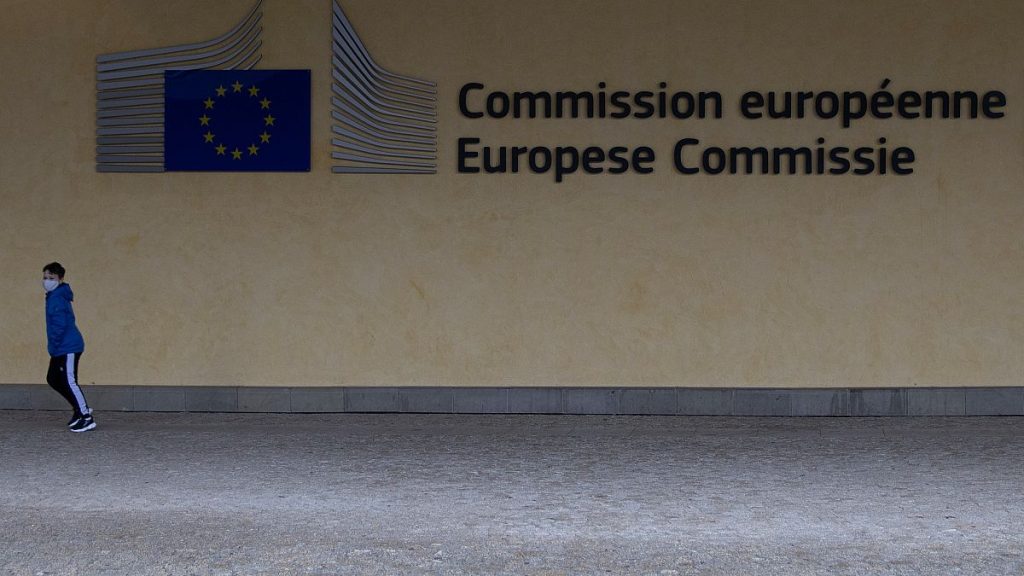Summarize this content to 2000 words in 6 paragraphs in Arabic
The EU has identified fiscal irregularities in eight members, as France prepares for landmark elections, and Brussels reshuffles its top jobs.
ADVERTISEMENTThe European Commission has formally warned eight of its member countries over their excessive budget deficits – relaunching a controversial fiscal intervention that’s been suspended since the pandemic. Belgium, France, Italy, Hungary, Malta, Poland and Slovakia were all berated for their failure to balance the books – while Romania faces the more serious charge that it’s failed to heed previous EU warnings over profligacy. The move comes at a sensitive time, as France prepares for key legislative elections and the EU’s own lead officials seek reappointment, and starts a process that can lead to fines on indebted nations. “Longstanding structural challenges are holding back the EU’s competitiveness,” EU Commissioner Valdis Dombrovskis said in a statement. “We look forward to receiving national fiscal structural plans from Member States that bring down debt and deficit and reflect today’s recommendations.” In 2020, Romania was told by its counterparts in the EU’s Council to “rigorously implement” steps to correct its fiscal imbalance by 2022, but is expected to have the biggest deficit in the EU next year, at 7% of GDP. It’s now the only EU country which Brussels now deems to have an excessive macroeconomic imbalance, and officials have previously urged reforms of taxation and public sector wages in a bid to correct that grave situation. Narrow escapeOther countries appear to have narrowly escaped censure – with Estonia’s spending seen as driven by an understandable focus on defence, and others such as Spain, Finland, Slovenia and Czechia deemed to only have minor or temporary breaches of budget norms.The EU’s fiscal rules, introduced alongside the common currency in the 1990s, say the imbalance in national fiscal positions shouldn’t be over 3% of GDP, with overall debt kept under 60%. They’ve have long proved to be political dynamite, as northern member states such as Germany and the Netherlands are reluctant to pay for what they see as reckless spending in Greece or Italy. The Commission’s move is likely to prove particularly incendiary in France, which recently saw its credit rating downgraded, and where snap legislative elections are due at the end of June. Marine Le Pen, leader of the far-right and eurosceptic National Rally that topped a recent EU poll, has proposed reducing the retirement age and cutting VAT on fuel. Bruno Le Maire, finance minister for liberal President Emmanuel Macron, has told local media of a potential “debt crisis” from Le Pen’s programme, adding that a “Liz Truss scenario is possible”, referring to the market frenzy that followed the short-lived British Prime Minister’s 2022 budget giveaway. Belgium, whose deficit will be nearly 5% next year, is also in political turmoil, as liberal Prime Minister Alexander De Croo announced his resignation after a disappointing election result.Political changeThe move also comes as Commission President Ursula von der Leyen seeks renomination for a second term in office – with Italy’s Prime Minister Giorgia Meloni among those yet to confirm their backing. Von der Leyen needs to be proposed by EU leaders – which they failed to do at an initial discussion held Monday – and then supported by the European Parliament, where Meloni and her political allies did well in recent elections. The reports produced today are the first step in a lengthy procedure that could see fines levied on countries deemed to jeopardise the euro’s financial stability. The framework was abandoned in 2020 when the Covid crisis, and subsequent energy price explosion, led governments to make unprecedented and expensive economic interventions. After much haggling, member states earlier this year agreed on a more flexible set of budget constraints to apply as of this year, allowing more wiggle room for spending on climate change or defence. ADVERTISEMENTToday’s move by the Commission opens a months-long process of discussion and analysis, with finance ministers expected to endorse formal recommendations for big spenders to correct their imbalances in December. UPDATE (19 June, 11:45):story updated throughout with details of Commission package.
rewrite this title in Arabic Commission warns France, Italy and six other countries over budget deficit
مقالات ذات صلة
مال واعمال
مواضيع رائجة
النشرة البريدية
اشترك للحصول على اخر الأخبار لحظة بلحظة الى بريدك الإلكتروني.
© 2025 جلوب تايم لاين. جميع الحقوق محفوظة.













